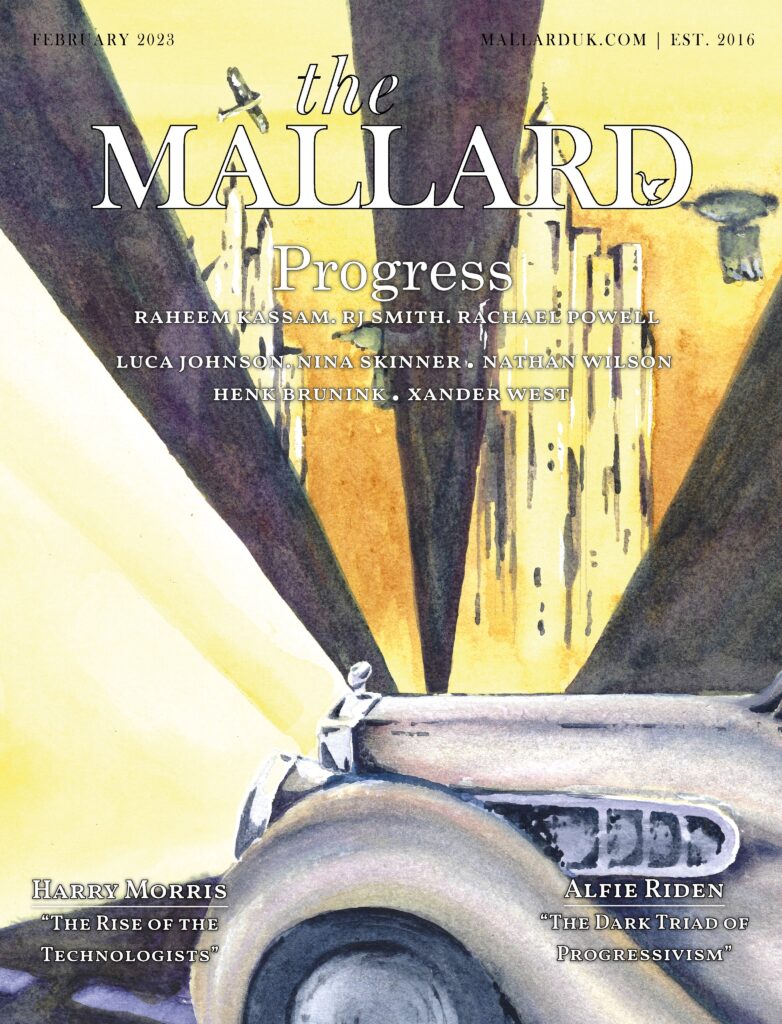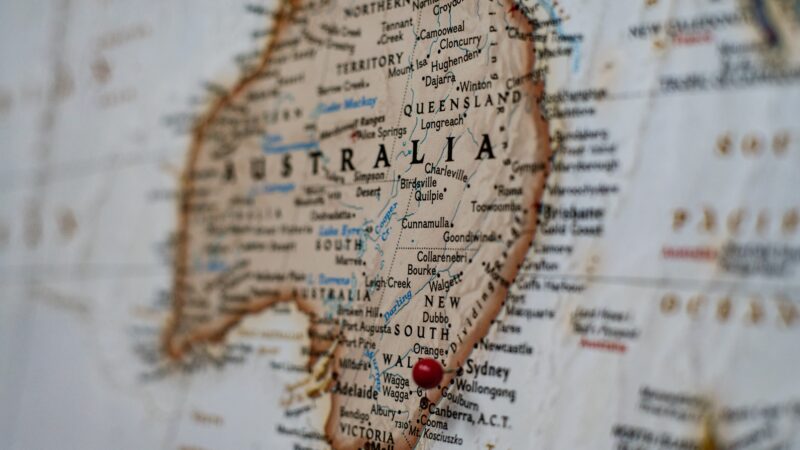Those of a progressive disposition have differing moral foundations to those on the right. Moral foundations theory was first proposed by Jonathan Haidt and subsequently developed in his 2012 book, The Righteous Mind. The theory’s intention is to explain human variation in moral reasoning based on innate moral foundations. Right-wing foundations would be best characterised as group-oriented values centred around order and hierarchy; left-wing foundations would be best characterised as individualistic values.
Rightists value all five moral foundations, but uniquely value in-group loyalty, purity and obedience to authority. Right-wingers care about harm avoidance and fairness, but to a lesser extent than their left-wing counterparts — leftists only care about these foundations. This creates a situation of asymmetric empathy. The right can empathise with the left, as they share the two individualistic foundations; the left can’t empathise with the right, as they don’t share the three group-oriented foundations. As a result, the left perceives the right as fundamentally nasty and wicked, whereas the right views the left as misguided and ignorant. This asymmetric empathy has been a persistent factor throughout time and allows the left to seize control of culture, pushing ever leftward as they take advantage of the right’s empathy for them. This condition persists until a point of such disorder is reached that a conservative backlash takes place within the society’s elite. A clear historic example of this backlashing tendency would be the social conservatism of the Victorian era juxtaposed with the decadence of 18th century England.
Psychologically speaking, progressives lack a full set of moral foundations, but leftism also correlates with mental illness. Slate Star Codex carried out a survey of more than 8,000 people which showed that those on the further left are more likely to be “formally diagnosed with depression, borderline personality disorder, bipolar disorder, or schizophrenia”.

This is an excerpt from “Progress”. To continue reading, visit The Mallard’s Shopify.
You Might also like
-
The Queen’s Jubilee: Britain is Still a Proud Nation
After spending a year across the pond in America, when I returned home to Britain, I was pleasantly surprised to find the streets of towns, cities, and villages decorated in union flags, with shop windows displaying various items in celebration of the Queen’s Platinum Jubilee. Before I left, I used to ask myself why the British couldn’t be as patriotic as the Northern Irish unionists were who displayed their patriotism all year around. But while these decorations may only last for the jubilee, they illustrate something important about our country: Britain is still a proud nation.
Unlike most nations of the world, Britain (along with Denmark) are the only two countries that don’t have a yearly National Day. Britain, of course, has days dedicated to the various patron saints that go largely uncelebrated, but the country does not have a day that brings national unity across the nation. Instead, our national celebrations only come once in a decade in the form of celebrating our monarchy.
The years Jubilee has been significant in signifying the proud attitudes that the British still hold for the union. This stands in contrast to the recent years of bombardment that have sought to teach the British to be ashamed of their history and heritage. This phenomenon can be linked to an anti-racism and anti-colonialist narrative, that has appeared in recent events such as students at Oxford University taking down a portrait of Her Majesty due to the history of colonialism , statues of well-known and respected national heroes being vandalised during Black Lives Matter protests, and my own experience of being suspended from Aberdeen student’s union last year for the words “Rule Britannia.”
These attempts to erase British history and its achievements, comes from a narrative pushed by Marxist’s which seek to teach the British that our imperialist past ought to be seen as a source of guilt due to the dynamic of the coloniser/colonised to the oppressor/oppressed and the empires promotion of capitalism through the industrial revolution. Some, such as Kehinde Andrews, even go as far as to compare Britain’s role in colonialism to that of Nazi Germany or Imperial Japan. But Britain never carried out atrocities like that of the Holocaust or the Rape of Nanking. In a world of empire building, the British Empire arguably modernised countries and created infrastructure within them. This thinking has served to not only attempt to abolish national pride but also the monarchy, arguing that its role serves to only reinforce privilege.
But the role of Her Majesty is more than a ceremonial institution, it is unarguably a crucial part in shaping national unity. Without it, people are more easily subjected to the political polarisation inherent to republicanism. The monarchy allows for patriots from all beliefs to rally under one crown. It is why Her Majesty is the Commander of the army, after all. By technically holding the reigns of military power, Her Majesty ensures they don’t fall subject to political division. Thus, the institution of the monarchy allows us to connect with our ancestors precisely because our ancestors, like our countrymen alive today, are also different from us yet have fallen under the same crown.
This year’s Jubilee has served to emphasise these factors, demonstrating that the will of British people has yet to be conquered. With thousands across the nation being unafraid to display their patriotism and admiration to their country by decorating their homes in union colours and celebrating with their communities. I myself was in London this weekend witnessing thousands of people, including many from Commonwealth countries such as Canada, joyfully waving their union flags and singing along to the national anthem with others they may have otherwise never spoken to: an important reminder that our monarchy not only serves to unify us, but also our former colonies outside of Britain.
Britain’s glory and legacy can therefore still be conserved even in an age in which it may look as if people have become increasingly spiteful of it. The British have historically been a people proud of their nation, customs and traditions. With thousands joining together across the nation in celebration of the flag and Queen they hold so dear, illustrating that nothing has yet changed. This nation, after all, will always be the place where our hearts, ancestors and souls will forever lay.
Post Views: 644 -
Manufactured Consent: The Growth of the Republican Movement in Australia
At the start of June we at The Mallard along with millions of others across the globe celebrated the Platinum Jubilee of Her Majesty Queen Elizabeth II. In the UK especially there was a great show of affection from the people to the Queen, with tens of thousands flocking to The Mall to witness the various parades of the guard, the cavalry, and communities from Britain and the commonwealth celebrating 70 years of Elizabeth II’s reign. For many within conservative circles, the amount of people who showed up seemed to be a clear indicator that the Republican movement in Britain is dead in the water, and far less influential than many smug liberals like to think it is.
Despite a tough couple of years for the Royal Family between the media crucifixion from the Megan Markle debacle and the loss of Prince Philip last year, not to mention the decades of having to adapt to a rapidly changing world, it is clear from the Platinum Jubilee celebration that the monarchy is here to stay, and I for one am happy to see that is the case.
However, the monarchy doesn’t just represent the people of Britain – it is an institution that is supposed to represent the larger commonwealth.
For Australia, in the aftermath of the recent Federal election and the victory of Anthony Albanese and the Labor government, new questions have arisen about the future of the monarchy in Australia.
Albanese’s appointment of Matt Thistlethwaite as the assistant minister for the republic has raised the issue of Australia’s position in becoming a fully independent republic, removing a British monarch as the head of state for a President-type figurehead for the Australian nation.
Of course, this role of “Assistant Minister for the Republic” is an indicator that the current government wants to transition into the “progressive” future of denying Australia’s cultural and historical ties with its mother nation in Europe, and embracing the Asia and America-centric world. Stripping the old oak timber foundations for the steel-beams and glass-panels of the New World Order.
Unfortunately this is nothing new. For decades the Australian government and politicians, both Labor and troublingly Liberal, have exercised their power in order to do away with any formal legal ties to Britain, from the Australia Act 1986, to the Referendum in 1999.
In the case of the 1986 Australia Act, while it may have been seen as a new chapter for Australian sovereignty and control over its own laws instead of being subjected to the whims of a British parliament – it was largely symbolic as Australia had been exercising sovereignty over its own country since its federation in 1901.
As for the 1999 Referendum, while the media and political class, as well as the metropolitan urbanites in Australian cities overwhelmingly backed the transition towards an Australian Republic, the “Yes” vote failed due to the overwhelmingly popular support that the monarchy had in rural and semi-rural areas.
Looking at the map of the vote, it’s clear to see that it would have been a disastrous imbalance for urban hubs to decide the entire fate of the country in relation to the monarchy and having the Queen as head of state.
While past attempts to make Australia a republic failed, that was a vastly different Australia, almost foreign to the one that exists today.
With the massive demographic shifts that have occured in Australian population hubs, both in terms of the sheer scale of the population and the ethnic make-up of these urban areas, the cultural ties that once existed with Britain and the monarchy are growing weaker. This hasn’t been by choice, but rather by effective action by both the government, education, and media to out-populate loyalists of tradition and those with ties to Britain, and guilt-trip any association with the colonial past and the great achievements of Britons in Australia.
In the last 20 years, Australia’s urban demographic has shifted considerably. Particularly due to the influx of immigrants from China and India, and Asia in general. While the majority of the population are still descendants of European immigrants, in urban constituencies the large swathes of non-European immigration have become a point of contention for many issues – most importantly integration into Australian culture. Anyone who has been to Box Hill in Melbourne can attest to the fact that this once very Australian suburb is now just a mini-Beijing.
These sub-communities exist across Australia, focused in the cities, where the votes count most crucially come election time. While some may discount this statement as blatant bigotry or intolerance, it is interesting to note that in the most recent federal election, the traditionally Labor seat of Fowler was won by the independent incumbent, Dai Le, with the constituencies large Asian population playing a huge role in her success.
Trends exist for a reason, and if immigrants or second/third-generation Australians are more likely to vote for candidates that look like them rather than one of the traditional parties, as horrible as they are, what is to say that these same demographics of people feel absolutely no cultural or historical ties with the monarchy and what it represents?
With more and more “New Australians”, what protects the wills and the interests of those who have had family here going back to the First Fleet?
The demographic change is just one issue – the other issue is the shaming of British achievements in Australia, and the constant bleeding-heart antics of politicians and the media to try and make a show of how “sorry” they are because of their ancestors success in building one of the modern world’s most impressive nations.
From Kevin Rudd’s national apology to the Aborigines (aka traditional land-owners) to the consistent vandalization of anything commemorating Captain Cook, and the cringe-inducing rants of “Abolish Australia Day” that is heard around campuses and TV panelists every year in January, the latest generations of Australians, “new” or old, have been taught to hate themselves, hate those who came before them, not see their country as their own but rather that they are trespassers, and that they should do everything in their power to disassemble the “racist past” and “build the Australia for all!”.
It’s become so ridiculous that you have every other person claiming Aboriginal ancestry in the style of Elizabeth Warren, in order to distance themselves from the “evil British settlers” – insufferably referring to Melbourne as “Naarm” or Sydney as “Ku-Ring-Gai” showing the rest of us how “in touch” they are with the land.
While these sentiments may come from a good place, the truth or the matter is that if “Australia is for all” it is really for no one. It is simply just another landmass with a smorgasbord population of random groups who have no ties to each other, no ties to a greater ideal or tradition, and no real unique identity.
Just another “progressive” nation, that progresses nothing other than endless consumption and existence for existence’s sake.
Frankly, if Australia was to have another referendum on the monarchy question I’m not confident that we’d get the same result as we did in 1999 with a rejection of such a blatantly anti-traditional notion. The country has changed too much, too fast, and too little has been done to oppose this in government or on the streets.
I don’t trust the same Australian politicians who overwhelmingly supported lockdowns and imprisonments for dissenters as people capable enough, or morally sound enough to be given the reins of full independence. But, if things continue the way they do, and if Albanese moves in the direction he’s indicated – there will be no stopping these sycophants from cutting the final ties of Australia to its kin on the other side of the globe, and enter the brave new world of Asia-Pacific “progressivism”.
The truth is simple; the Republican movement in Australia isn’t just anti-monarchy or anti-British – it’s anti-Australian.
Post Views: 671 -
Net Zero Versus Cost of Living
Atmospheric Carbon Dioxide levels are rising – that is a fact. Before the industrial revolution, atmospheric CO2 levels steadily remained at around 280ppm (parts per million). This number had remained constant for thousands of years, with very minor increases over the years due to natural processes. In March this year, CO2 concentrations were sitting at 418.81ppm. This huge increase in atmospheric carbon dioxide concentrations has already created and will continue to create unprecedented effects on the environment globally. This daunting fact has prompted leaders across the globe to act.
Last November in Glasgow, the COP26 summit was held which was widely regarded as an instance of the UK taking global leadership in the fight against climate change. The UK has worked hard to bring all participants of COP26 to a consensus about the actions needed to mitigate against the harmful effects of climate change and reduce global CO2 emissions as a means of lessening the damage caused by global warming in the future. In doing so, the UK government has sought to fulfil their end of the bargain and beyond, making bold promises in the hopes of accelerating the UK’s charge to becoming net carbon neutral by the year 2050.
Energy production is one of the biggest issues regarding our drive to net zero, producing 21% of the UK’s greenhouse gas emissions. As such, the government has placed a levy on domestic energy bills, costing the average UK household an extra £159 per year on energy bills as a means of financing subsidies for renewable energy products. In addition to this, the government has recently raised the household electricity price cap from £693 to £1,971. This will put immense strain on the budgets of many households, not even mentioning the skyrocketing inflation recorded at 7% in March 2022. This financial squeeze is not showing any signs of relenting, with disposable incomes predicted to fall by 1.9% this year – an even bigger decline in living standards than the one seen in the year prior to the Winter of Discontent.
With all the economic doom and gloom spreading about, a question must be asked – is net zero by 2050 worth it? The UK sits on top of huge shale gas deposits which could easily be exploited by the government issuing licences for companies to begin fracking on these lands, solving the gas supply issues which drives lots of the inflation currently seen. This gas could also be used to generate electricity domestically, reducing the UK’s reliance on French electricity whilst increasing supply to the point where households’ electricity bills could be drastically reduced. The UK currently contributes to 1% of global emissions, meaning that despite being virtuous, the drive to net zero will have relatively little effect globally when countries like China and India make relatively little efforts to reduce their own carbon footprints. Moreover, exploiting domestic energy supplies will likely result in lower overall carbon emissions than the alternative of importing, as huge amounts of carbon dioxide is emitted when transporting these resources to the UK.
As such, it is little surprise that Reform UK – the largest right-wing opposition party to the Conservative party has begun to campaign against the government’s current plans to achieve net carbon neutrality. Whilst it is a noble cause to reduce carbon emissions, the current economic reality shows that the plans currently in place will massively reduce the quality of life for millions in this country instead of being the ‘Green Revolution’ that was promised by this government. We need pragmatic, not dogmatic solutions to current issues and reviving domestic energy production is the first step to solving the cost-of-living crisis and reducing our dependence on energy imports. We still have twenty-eight years to reach our target. Making sure that people are financially safe should be the government’s priority, only then can we focus on the environment. There is no doubt that this method of mitigating the cost-of-living crisis will encounter large resistance from pressure groups such as the Extinction Rebellion, but a far larger resistance will be seen in the polls if the government does not get a handle on the situation soon.
Post Views: 595



